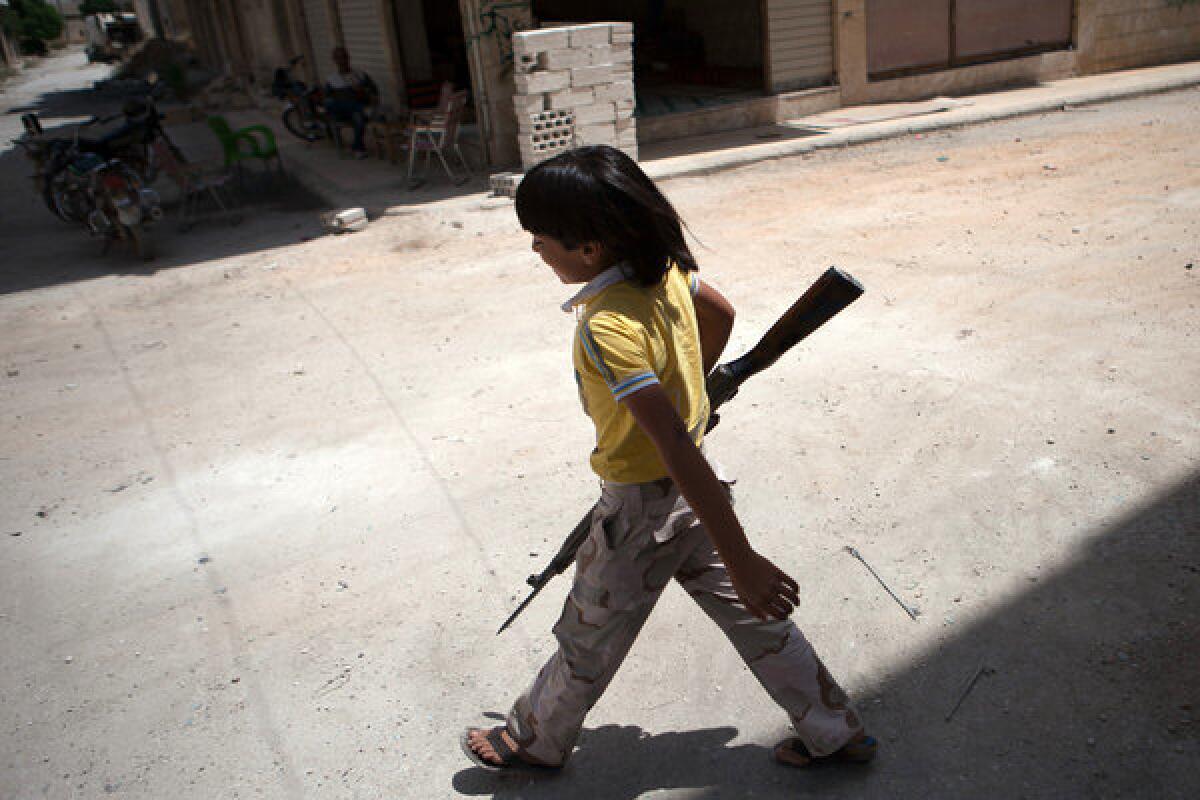Obama’s next moves in Syria: An update

- Share via
On Thursday, the White House announced that President Obama has decided to send military aid to Syria’s rebels. By Friday morning, several facets of the policy change have become clearer.
As White House aide Ben Rhodes hinted, the aid will indeed include weapons and ammunition. He wasn’t explicit because the CIA still wants to keep the supply program formally covert, partly for legal reasons.
But early indications are that the rebels will mostly get small arms, not the weapons they wanted most: antiaircraft missiles. So the U.S. decision isn’t likely to change the picture on Syrian battlefields in the short run. The rebels were already getting small arms and ammunition from Arab countries such as Saudi Arabia and Qatar. And earlier rounds of non-military supplies from the United States have taken months to arrive.
The more immediate impact, instead, is likely to be political and psychological. The U.S. decision opens the way for a more overt coalition with Britain, France and Turkey to aid the rebels jointly. And that, U.S. officials hope, will send a signal to Syria’s Bashar Assad and his sponsors in Iran and Russia that they can’t rely on a quick military victory.
Obama still wants to push all sides in Syria toward a negotiated settlement. But most of his aides have concluded that a Geneva conference now, with the rebels in full retreat, is a bad idea. Instead, the first priority is helping the rebels get back on their feet -- a process that could take a long time.
ALSO:
McManus: The long haul in Syria
Poll: Assad crossed the ‘red line’; what should we do?
Syria’s Assad crossed ‘red line.’ What’s Obama’s next move?
More to Read
A cure for the common opinion
Get thought-provoking perspectives with our weekly newsletter.
You may occasionally receive promotional content from the Los Angeles Times.










